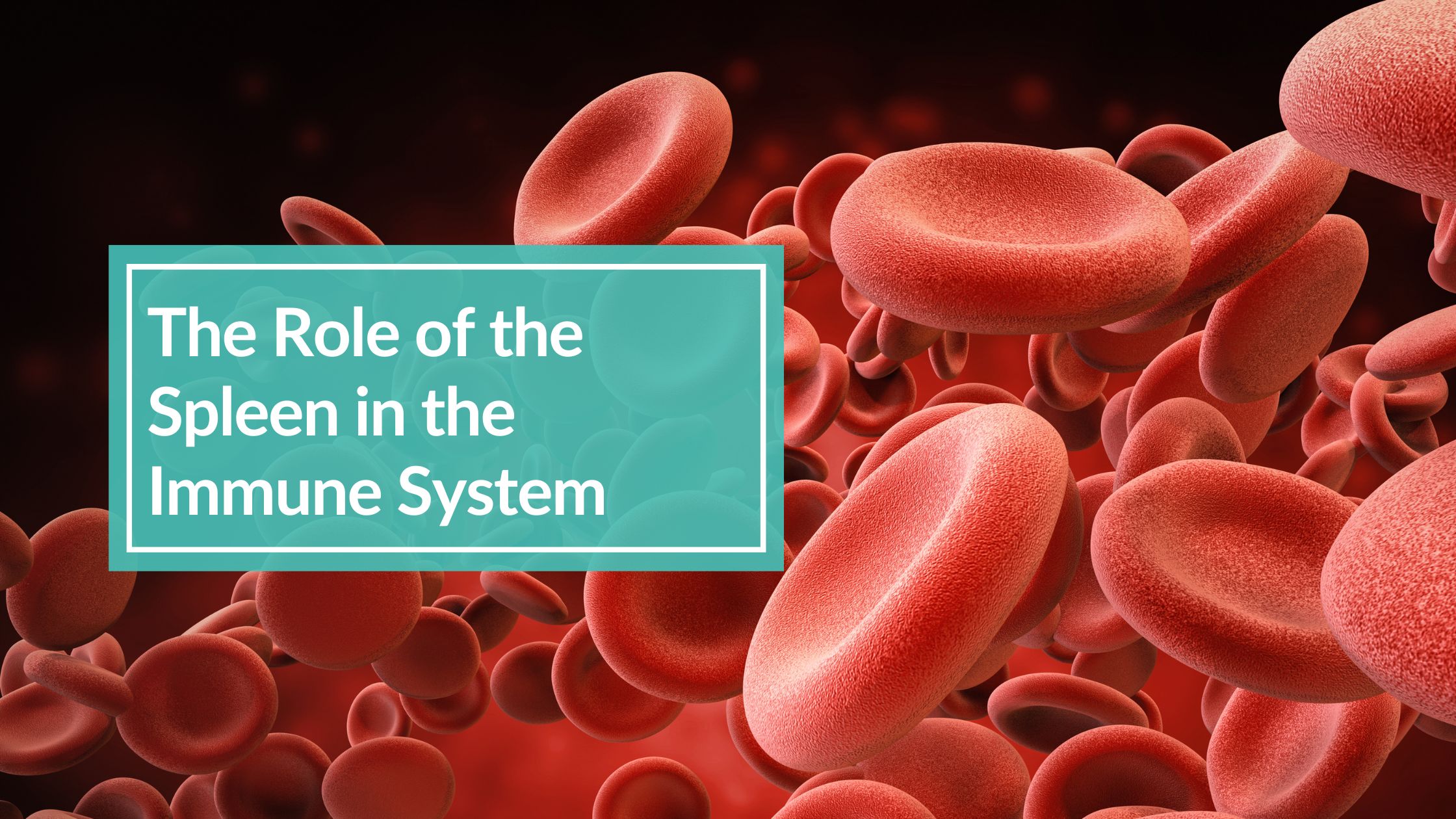
What is the Role of the Spleen in Your Body?
Our philosophy at CBH Energetics is all about creating balanced health between body systems. While our bioenergetic testing focus is on 14 body systems, we also focus on specific organs that may be influencing the energetic stress within those body systems. Each organ or body system can have connections to environmental toxins, nutritional imbalances, digestive stress, or other organ stress. The role of the spleen has an emotional component, as most organs do, according to Traditional Chinese Medicine.
The spleen is an organ that can influence multiple areas of the body, including your:
Stress in the spleen can mean many different things, including a resonating environmental toxin or changes in the tissue itself, which can naturally happen due to aging. This blog post will cover the role of the spleen as an organ that, despite its importance, is often relegated to the sidelines in discussions about human anatomy and health in general.
What is the Role of the Spleen: the Basics
The spleen is a small, soft organ located in your upper left abdomen, near your stomach. It is almost the size of your fist and has a purplish color. Despite its small size, the role of the spleen is to perform several essential tasks to keep your body functioning optimally.
The spleen is part of the Lymph System, which is a network of vessels and organs that works to keep body fluid levels in balance and defend against infections. The Lymph System is key to our body’s natural drainage pathways and their effectiveness. It is the largest organ in the lymphatic system and is in constant communication with the Blood and the Immune System.
What are the Characteristics of the Spleen?
We know the spleen sits under your rib cage, above your stomach, and below your diaphragm. Its precise location protects it from potential injury. Physically, the spleen is approximately five inches long, three inches wide, and one and a half inches thick. It weighs around 150 grams. The spleen is divided into two main parts: the red pulp and the white pulp, each playing a different role in the body’s defense system.
The structure of the spleen is similar to a lymph node. The spleen itself is much larger. It does contain lymph tissue in the white portion of the spleen. The red portion contains a blood supply and lymph cells like lymphocytes and macrophages (1).
What is the Role of the Spleen in the Immune System?
The spleen is responsible for filtering out old and damaged red blood cells and recycling them. It also stores white blood cells and platelets, which help your body fight off infections and diseases.
The white pulp of the spleen is where much of the immune system function happens. This part of the spleen is packed with white blood cells that attack and destroy bacteria and other harmful substances. The red pulp, on the other hand, filters the blood and removes any old or damaged red blood cells.
The Spleen and Links to Functions of the Body
Aside from its Immune System functions, the spleen also has other important roles. One of its important functions is producing red blood cells during fetal development. However, after birth, this function is taken over by the bone marrow, which is part of the Locomotor System, and the spleen’s primary role becomes to act as a blood filter.
Another function of the spleen is to act as a blood reservoir. In times of severe blood loss, the spleen contracts to release stored blood into the system. Furthermore, the spleen helps to regulate the amount of blood in the body and the amount of iron available for producing hemoglobin.
As for the mind-body connection, the spleen is related to anxiety according to the philosophy of Traditional Chinese Medicine (TCM). Worry or anxiety is connected to the spleen, along with the Pancreas and stomach. There are five collective emotions in TCM that are called Zhi. These are joy, anger, grief, anxiety, and fright. The spleen is connected to the Earth element, which has its own characteristics of transforming and distributing things through the body.
What Problems Affect the Role of the Spleen?
Like any other organ, the spleen can also have problems. These can range from mild to severe, and some spleen problems can be life-threatening.
Always contact a licensed care practitioner if you suspect you have a health issue. Bioenergetic testing does not aim to treat or diagnose. It is a service that helps detect stress in the body and work to balance it. There are conditions for all body systems that require medical attention.
Common issues associated with the spleen include splenomegaly (enlarged spleen), spleen rupture, spleen infarction (death of spleen tissue due to lack of blood supply), and various infections and diseases.
Pathogens That Hinder the Role of The Spleen
Just like any other organ in your body, the spleen can be affected by various pathogens. Bacteria, viruses, and parasites can all cause stress in the spleen. Some common infections that can affect the spleen include:
- Mononucleosis or Epstein-Barr Virus
- Malaria and malaria-like organisms, including Babesia
- Other co-infections of Lyme Disease
Mononucleosis, also known as “mono,” is a viral infection that can cause the spleen to become enlarged. Malaria, a disease caused by a parasite transmitted through mosquito bites, can also affect the spleen, causing it to enlarge and potentially rupture.
Babesia, as mentioned, is a parasite that affects red blood cells, and since many are stored in the spleen, they can be damaged, as Babesia has an affinity for red blood cells. Our Affiliate Practitioners learn more about Lyme and its co-infections in our Bioenergetics Training Course for holistic health professionals.

Certain bacterial infections, such as those caused by Streptococcus pneumoniae, Haemophilus influenzae, and Neisseria, lead to an infection of the spleen, known as splenic sepsis. Don’t worry! Just because you see bioenergetic stress in the spleen does not mean that you “have” sepsis. It means that there is something that is draining health energy from the spleen.
Conventional Diagnosis and Treatment of Spleen-Related Issues
Diagnosing spleen-related issues often involves a physical examination and medical history assessment. Imaging tests such as ultrasound, CT scan, or MRI may also be used. Depending on the diagnosis, treatment options may include medication, lifestyle changes, or, in severe cases, surgery.
Takeaways for Caring for Your Spleen
While there are no specific exercises or diets for improving the role of the spleen, maintaining a healthy lifestyle can help ensure its proper function, along with all your body systems. This includes eating a balanced diet, getting regular exercise, and staying hydrated.
Some supplement ingredients, like the one in the supportive Spleen Chi, contain herbs like astragalus to support the Immune System and Amomum villosum, which is a ginger-like plant that supports the gastrointestinal tract. This plant has anti-inflammatory properties, along with antimicrobial activity (2).
It’s also important to avoid activities that can lead to injuries, such as contact sports, which can cause damage to the spleen.
Pay attention to any symptoms that may indicate a problem with your spleen, such as pain in the upper left part of your abdomen, feeling full without eating or after eating only a small amount, fatigue, and frequent infections.
If you suspect you have mononucleosis or chronic Epstein-Barr virus, your spleen might need some attention. This virus can affect your liver as well and can invade your B Cells, which are part of your Immune and Lymph systems.
DISCLAIMER: Balanced Health, LLC/CBH Energetics and any parent, subsidiary, affiliated or related entities and companies do not provide medical advice or services. This post and the bioenergetic products and services offered by Balanced Health, LLC/CBH Energetics including, but not limited to, bioenergetic tests, bioenergetic scans, bioenergetic reports and related products and services (collectively the “Bioenergetic Products and Services”) are designed for educational and informational purposes only and are not intended to diagnose, treat, cure, or prevent any disease, condition, complaint, illness or medical condition and are not a substitute for professional services or medical advice. Testing is not used for the purpose of obtaining information for the diagnosis, prevention, or treatment of disease or the assessment of a health condition or for identification purposes.


